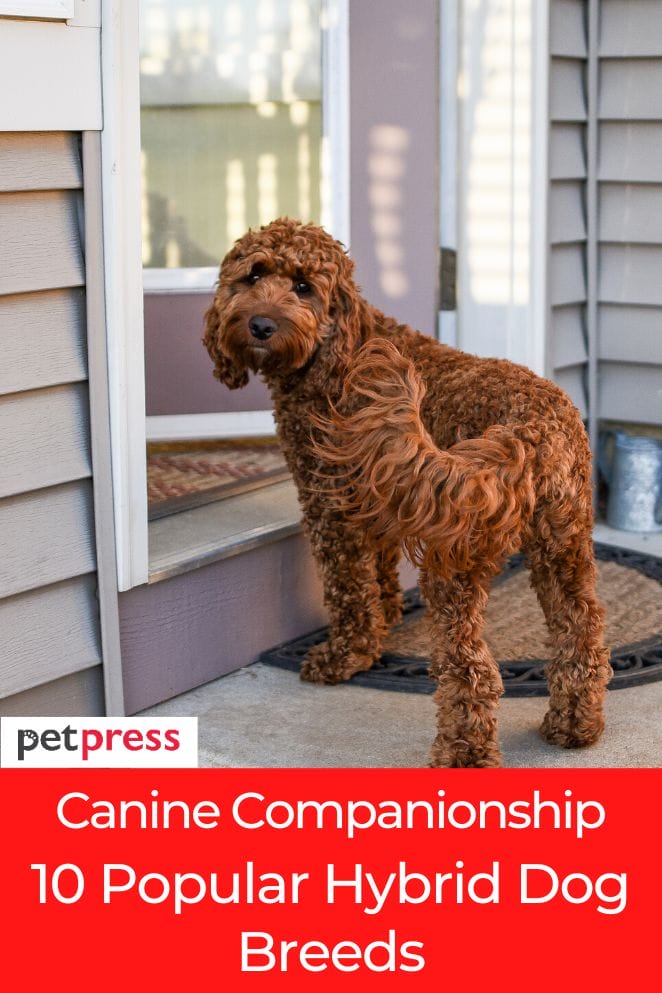
Hybrid dog breeds, also known as designer dogs, have gained immense popularity in recent years.
These unique canines are the result of crossbreeding two different purebred dogs, combining the best traits of each parent.
In this comprehensive guide, we will explore the characteristics of hybrid dog breeds, highlight 10 of the most popular hybrids, discuss potential challenges, and provide insights on finding the right breed for your lifestyle.
Characteristics of Hybrid Dog Breeds
Hybrid dog breeds are the offspring of two different purebred dog breeds, and they can inherit the best qualities of both parents, such as appearance, personality, and health.
They are not a distinct breed, but rather a mix of two purebred dogs.
The appeal of hybrid dogs, also known as “designer dogs,” lies in having a pet with unique characteristics.
However, it’s important to note that the genetic characteristics of hybrid dogs sort out randomly, so there’s no guarantee that they will inherit the best traits of each breed.
While some suggest that a cross of two breeds has “hybrid vigor,” which may make them healthier, the health and traits of a hybrid dog can be unpredictable, especially in successive generations.
Despite the unpredictability of hybrids, they can still make wonderful and beloved family companions.
Additionally, adopting a hybrid dog from a shelter or rescue can be a rewarding choice, as it provides a loving home for a deserving canine.
10 Popular Hybrid Dog Breeds
Cockapoo
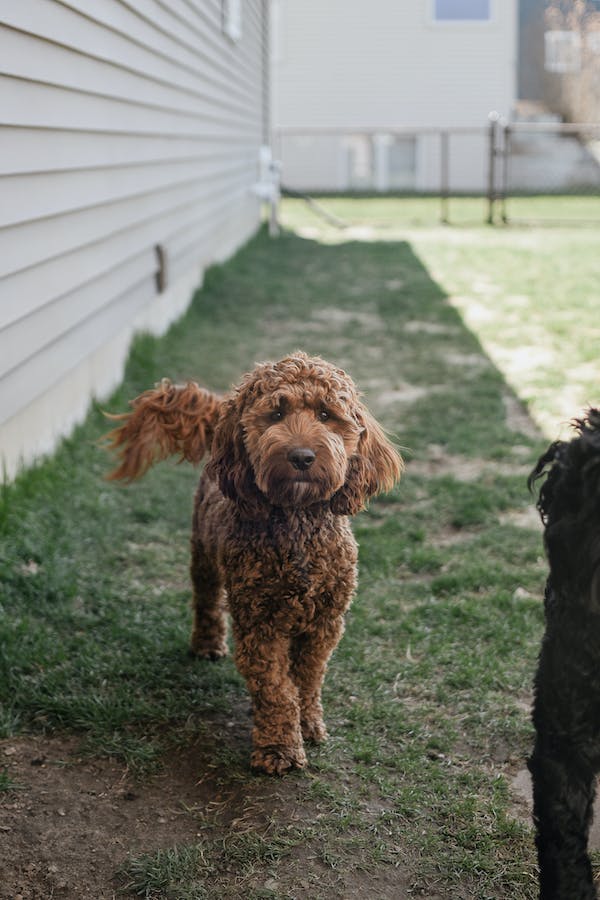
The Cockapoo is a delightful canine companion resulting from the crossbreeding of a Cocker Spaniel and a Poodle.
This charming breed is celebrated for its intelligence and affectionate nature, making it a beloved choice for families.
Cockapoos are known for their adaptability and are often considered a great choice for households with children due to their gentle demeanor and friendly disposition.
Breed Overview
| Weight Range | 12-24 pounds |
| Length Range | 10-15 inches |
| Coat Color | Varied, often curly |
| Characteristics | Intelligent, affectionate, adaptable, good with children |
| Life Expectancy | 12-15 years |
Golden Shepherd
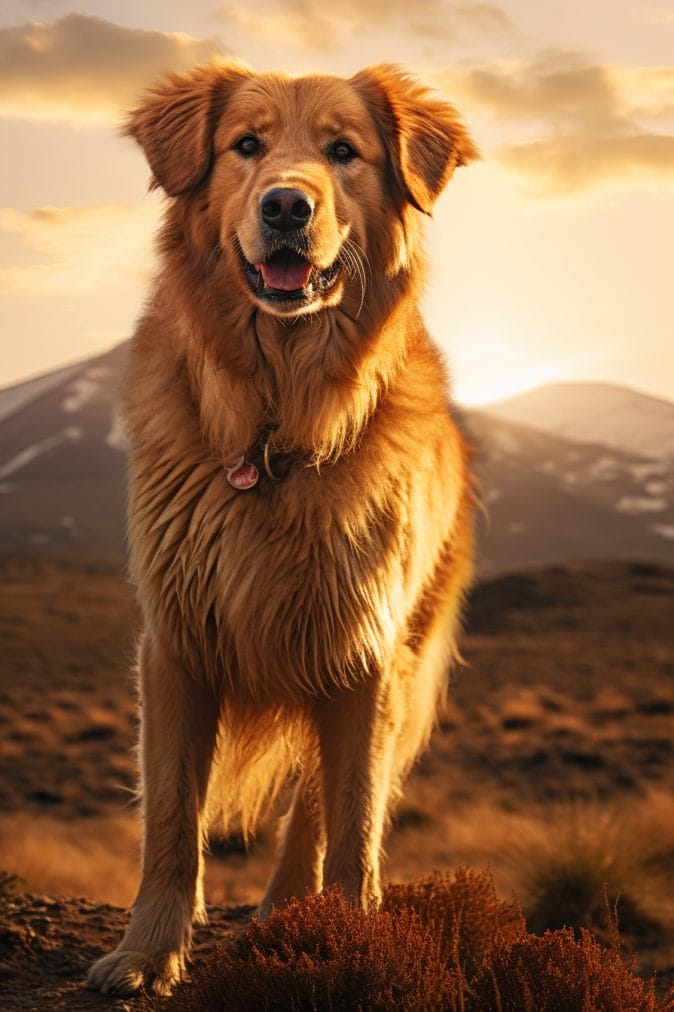
The Golden Shepherd, a mix of a German Shepherd and a Golden Retriever, is highly revered for its loyalty and versatility.
This hybrid combines the intelligence and protective instincts of the German Shepherd with the friendly and adaptable nature of the Golden Retriever.
Golden Shepherds make excellent family pets, excelling in various roles, from loyal companions to reliable working dogs.
Breed Overview
| Weight Range | 55-90 pounds |
| Length Range | 22-26 inches |
| Coat Color | Varied, often golden |
| Characteristics | Loyal, versatile, protective, family-friendly |
| Life Expectancy | 10-14 years |
Labradoodle
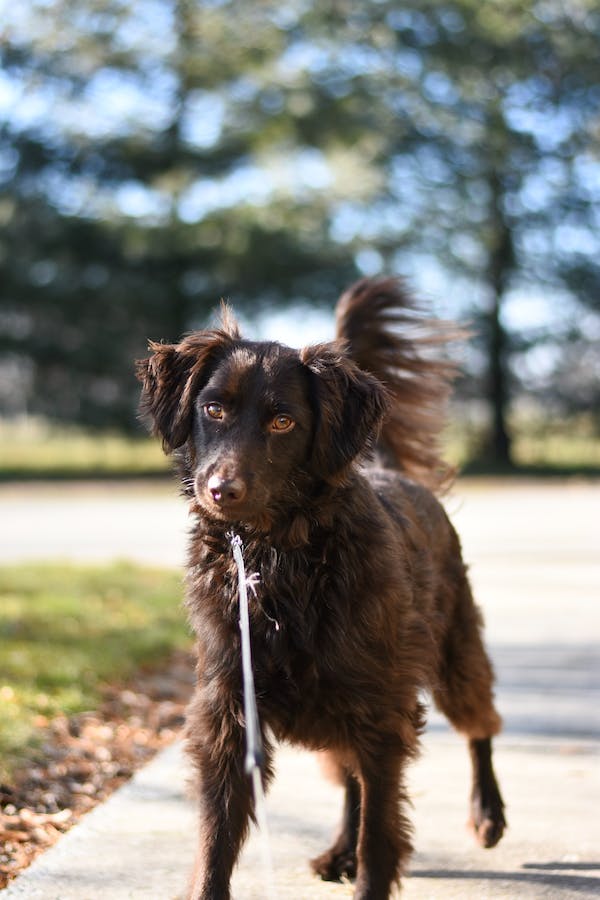
Labradoodles, a cross between a Labrador Retriever and a Poodle, have gained popularity for their hypoallergenic coats and friendly temperaments.
These dogs are known for being social, intelligent, and easy to train.
Labradoodles often serve as excellent therapy and assistance dogs, thanks to their gentle and patient nature.
Breed Overview
| Weight Range | 15-65 pounds |
| Length Range | 13-24 inches |
| Coat Color | Varied, often curly |
| Characteristics | Hypoallergenic, friendly, intelligent, trainable |
| Life Expectancy | 10-15 years |
Cavapoo
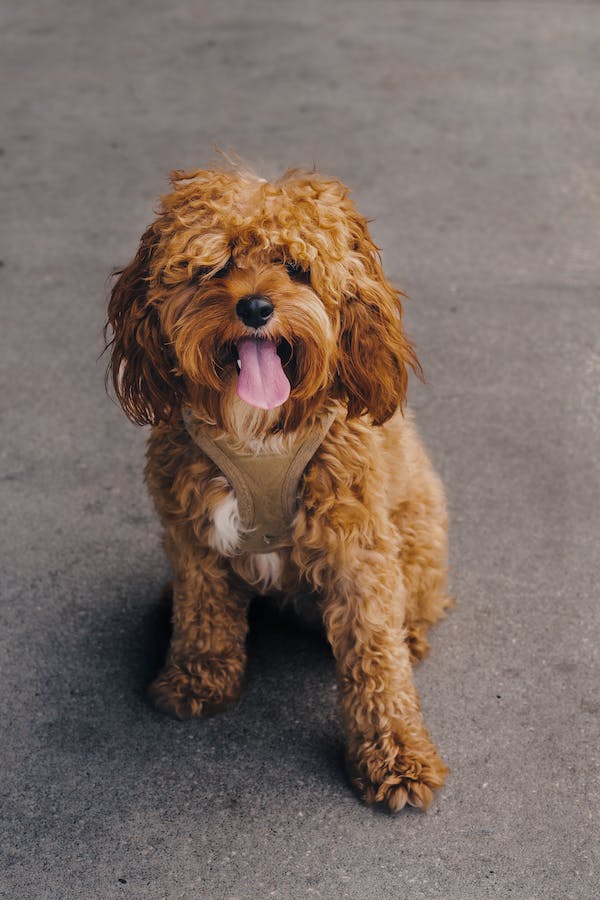
The Cavapoo, a delightful blend of a Cavalier King Charles Spaniel and a Poodle, is adored for its charming appearance and gentle demeanor.
These affectionate companions are well-suited for families and individuals alike, showcasing adaptability and a natural affinity for human companionship.
The Cavapoo’s manageable size and friendly disposition make it an excellent choice for apartment living or families with children.
Breed Overview
| Weight Range | 12-25 pounds |
| Length Range | 9-14 inches |
| Coat Color | Varied, often wavy or curly |
| Characteristics | Charming, gentle, adaptable, well-suited for families |
| Life Expectancy | 12-16 years |
Maltipoo
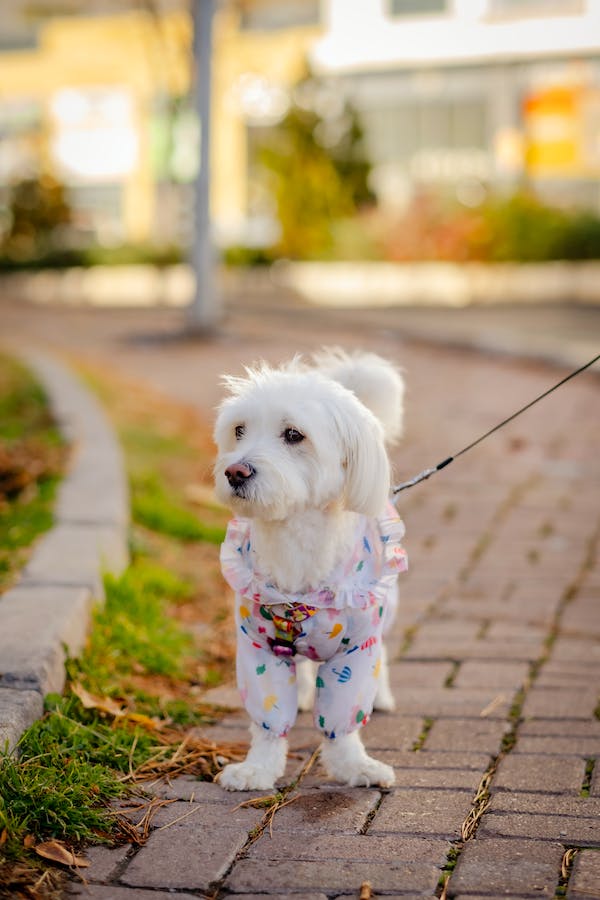
Maltipoos, resulting from the combination of a Maltese and a Poodle, are known for their playful personalities and low-shedding coats.
This adorable breed is cherished for its loving nature and suitability for various living environments.
Maltipoos often form strong bonds with their owners and thrive on companionship, making them ideal pets for those seeking a loyal and affectionate canine companion.
Breed Overview
| Weight Range | 5-20 pounds |
| Length Range | 8-14 inches |
| Coat Color | Varied, often light colors |
| Characteristics | Playful, affectionate, low-shedding, good for apartments |
| Life Expectancy | 10-15 years |
Bugg
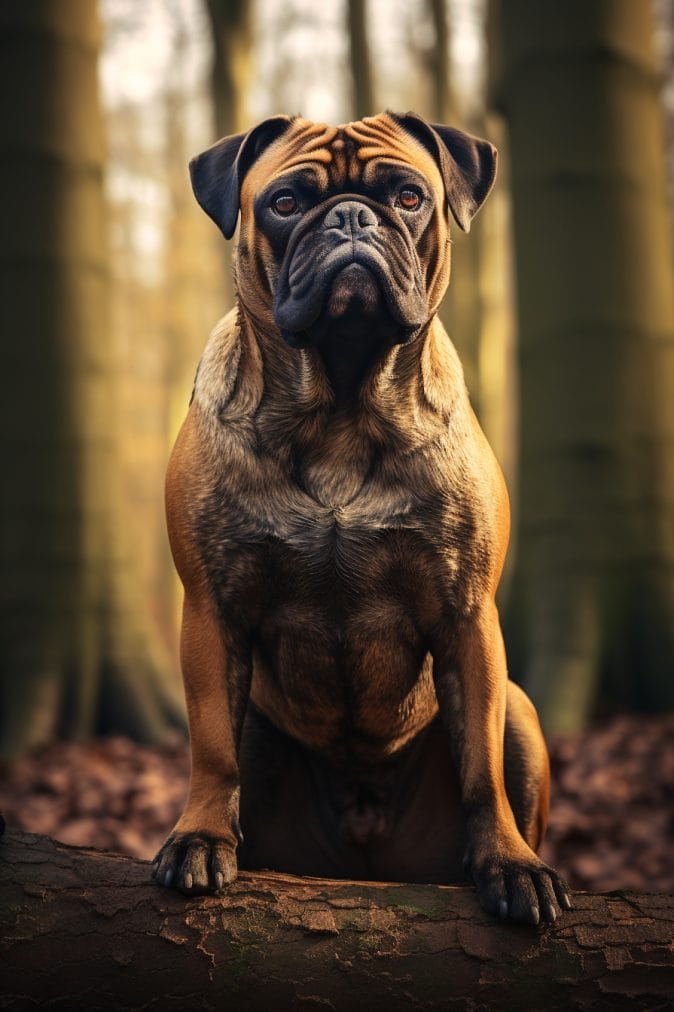
The Bugg is a delightful hybrid resulting from the crossbreeding of a Boston Terrier and a Pug.
These small-sized dogs are known for their spunky attitude and affectionate bond with their families.
They often inherit the charming personality traits of both parent breeds, making them playful, energetic, and highly sociable companions.
Buggs are characterized by their expressive faces, short snouts, and distinctive coat colors.
Breed Overview
| Weight Range | 10-25 pounds |
| Length Range | 10-17 inches |
| Coat Color | Varied, often brindle or fawn |
| Characteristics | Spunky attitude, affectionate, playful, energetic, social, expressive faces |
| Life Expectancy | 10-13 years |
Pomsky
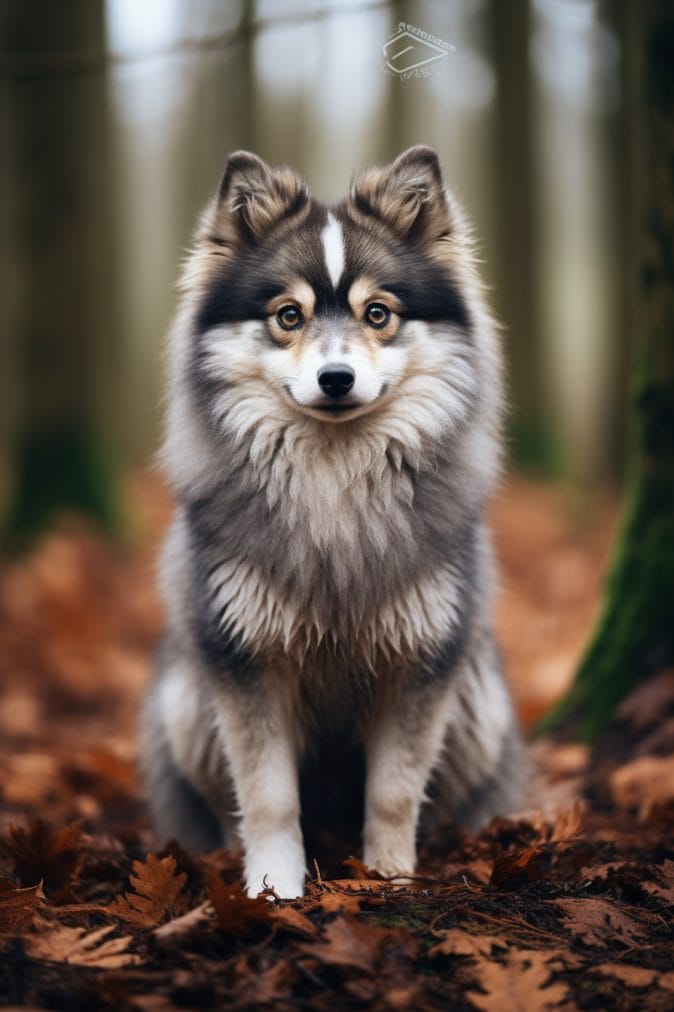
The Pomsky is a captivating mix of a Pomeranian and a Husky, blending the adorable appearance of the Pomeranian with the striking features of the Husky.
These medium-sized dogs are cherished for their striking appearance and lively spirit.
Pomskies typically inherit a fluffy coat, often with striking markings and vibrant colors.
They are known for their energetic nature, intelligence, and playful demeanor.
Breed Overview
| Weight Range | 15-30 pounds |
| Length Range | 10-15 inches |
| Coat Color | Varied, often sable or merle |
| Characteristics | Striking appearance, lively spirit, energetic, intelligent, playful, requires regular exercise and mental stimulation |
| Life Expectancy | 12-16 years |
Goldendoodle
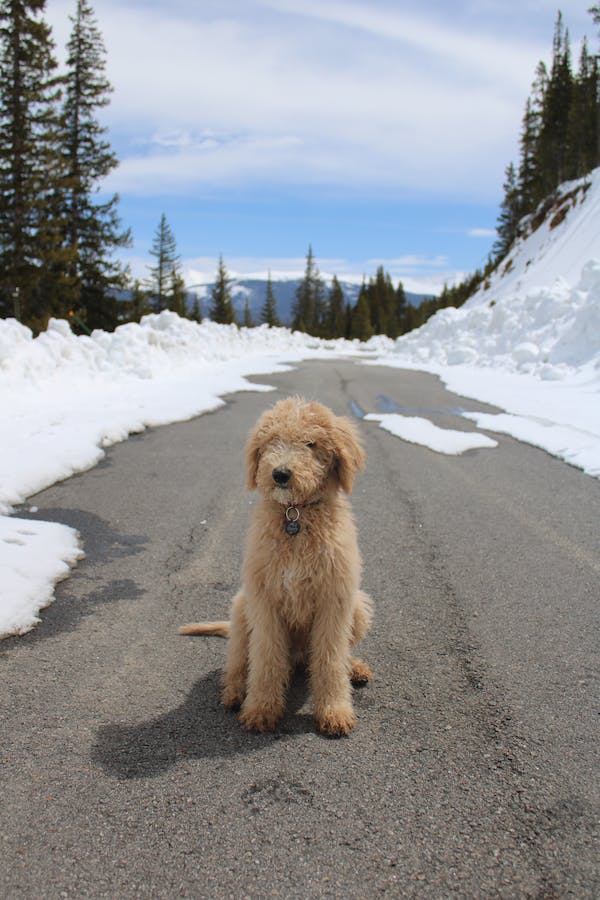
The Goldendoodle is a popular crossbreed between a Golden Retriever and a Poodle, renowned for its intelligence and social nature.
These medium to large-sized dogs inherit the best qualities of both parent breeds, including their friendly disposition, loyalty, and affectionate nature.
Goldendoodles are prized for their hypoallergenic coats, making them suitable companions for individuals with allergies.
Breed Overview
| Weight Range | 45-100+ pounds |
| Length Range | 20-25+ inches |
| Coat Color | Varied, often cream or gold |
| Characteristics | Intelligent, social, friendly, loyal, hypoallergenic coat, versatile in various roles including therapy and service |
| Life Expectancy | 10-15 years |
Shihpoo
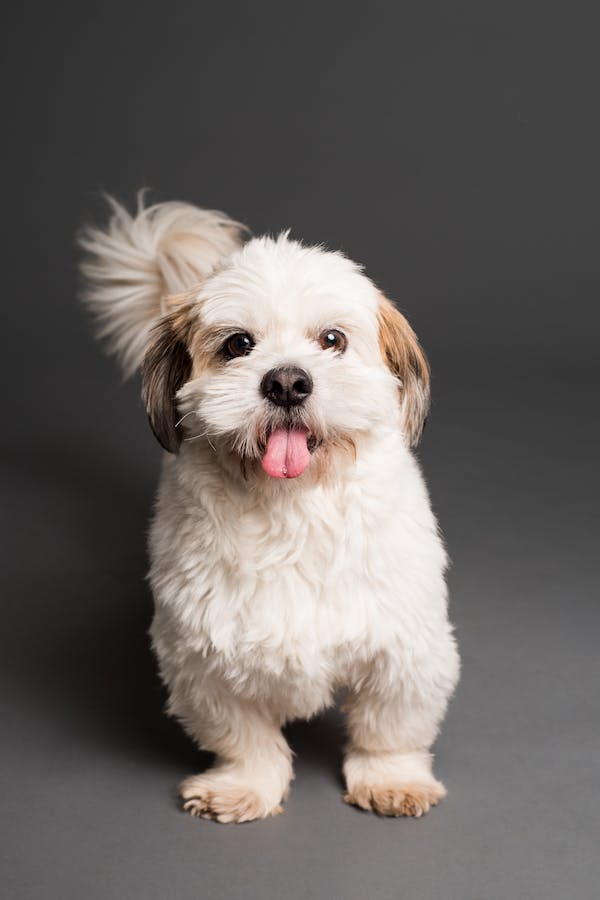
The Shihpoo is a charming blend of a Shih Tzu and a Poodle, adored for its loving nature and hypoallergenic coat.
These small-sized dogs exhibit a delightful combination of traits from both parent breeds, including their affectionate demeanor, intelligence, and low-shedding coats.
Shihpoos are known for their playful personality and adaptability to various living environments.
They form strong bonds with their owners and thrive on attention and companionship.
Breed Overview
| Weight Range | 5-20 pounds |
| Length Range | 8-13 inches |
| Coat Color | Varied, often solid or parti-color |
| Characteristics | Loving nature, hypoallergenic coat, playful, adaptable, forms strong bonds with owners |
| Life Expectancy | 10-18 years |
Yorkipoo
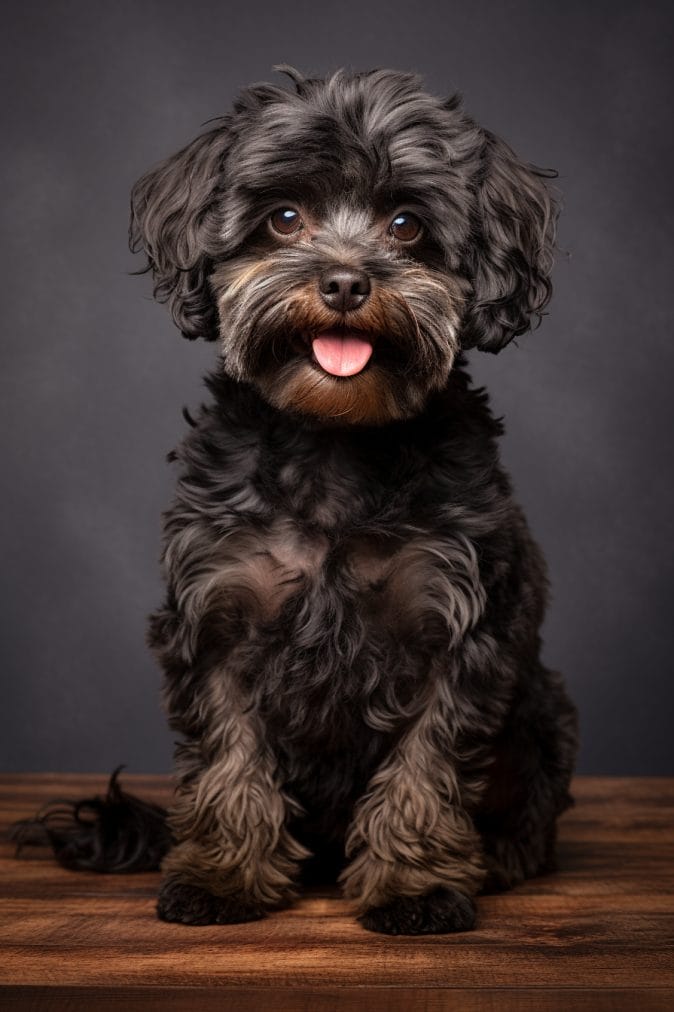
The Yorkipoo is a delightful crossbreed between a Yorkshire Terrier and a Poodle, known for its confidence and devotion to its owners.
These small-sized dogs inherit the best qualities of both parent breeds, including their intelligence, charm, and affectionate nature.
Yorkipoos typically have a compact and sturdy build, with a curly or wavy coat that is often low-shedding and hypoallergenic.
Breed Overview
| Weight Range | 5-15 pounds |
| Length Range | 7-12 inches |
| Coat Color |
Varied, often black and tan or parti-color
|
| Characteristics |
Confident, devoted, intelligent, affectionate, outgoing, low-shedding and hypoallergenic coat
|
| Life Expectancy | 12-15 years |
Potential Challenges of Hybrid Dogs
While hybrid dog breeds offer a delightful blend of traits, it’s essential to be aware of potential challenges. These include:
Unpredictable health issues
Hybrid dogs, resulting from the crossbreeding of different breeds, face the potential of inheriting health issues from both parent breeds.
The risk is heightened when both parent breeds share susceptibilities to the same conditions.
This unpredictability poses a challenge in anticipating and managing the dog’s health effectively.
Conditions such as hip dysplasia, heart disease, or specific genetic disorders may manifest, requiring careful monitoring and veterinary attention.
Lack of breed recognition
One notable challenge faced by hybrid dogs is the lack of recognition as distinct breeds by prominent organizations like the American Kennel Club (AKC).
This absence of official recognition can create difficulties in terms of pedigree documentation and adherence to established breed standards
Genetic diversity and inherited diseases
Hybrid dogs may experience challenges related to genetic diversity, especially if the parent breeds share genetic similarities.
Limited genetic diversity within dog breeds can increase the risk of inherited diseases, such as cancer, blindness, and other hereditary conditions.
Understanding the genetic background of both parent breeds becomes crucial to managing and mitigating potential health issues in hybrid dogs.
Cost and black market risks
Acquiring a hybrid dog can be a costly venture, often influenced by factors such as the popularity of specific breeds or unique traits.
Unfortunately, this demand can lead to the emergence of black market activities, including puppy scams and puppy mills.
Engaging with such practices not only poses financial risks but also jeopardizes the well-being of the dogs involved.
Unpredictable traits
The random assortment of genetic characteristics in hybrid dogs can result in unpredictable traits, encompassing appearance, personality, and health.
While some may inherit the best traits of each parent breed, others may exhibit a combination that may be challenging to foresee.
This variability emphasizes the importance of understanding the potential outcomes and being prepared for a diverse range of traits in a hybrid dog.
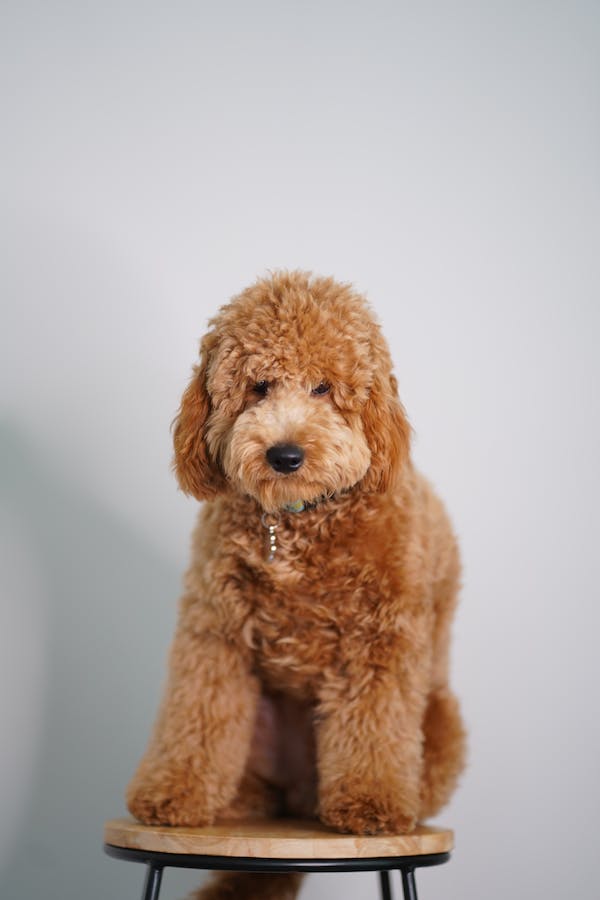
How to Find the Right Breed
To find the right dog breed that suits your lifestyle, it’s important to consider various factors. Here are some ways to help you find the most compatible dog breed:
- Research and learn: Take the time to research and learn about different dog breeds. Understand their characteristics, exercise needs, grooming requirements, and temperament.
- Breed selector tools: Use online breed selector tools such as those provided by The Kennel Club, Select a Dog Breed, Purina, and the American Kennel Club.
- Meet the breeds: Dog shows and events like Discover Dogs and Crufts are great places to interact with various breeds and learn about their traits.
- Talk to owners: Speak to friends, family members, or other dog owners about their experiences with specific breeds.
- Consider your lifestyle: Some breeds are more suitable for active individuals, while others may be better for a more relaxed environment.
- Breed clubs: These clubs can offer detailed insights into specific breeds and connect you with responsible breeders.
Conclusion
The popularity of hybrid dog breeds has resonated with dog enthusiasts globally, presenting an appealing blend of diverse traits and personalities.
Embracing these unique companions involves gaining insight into their distinctive characteristics, acknowledging potential challenges, and engaging in diligent research.
By doing so, one can open their home to a remarkable companion.
The special charm and individuality that hybrid dogs bring make them a distinctive and cherished addition to any family.
FAQs
There is no guarantee, but some believe hybrid vigor in hybrids reduces the risk of certain inherited diseases.
Training requirements can vary based on the specific traits inherited by the hybrid dog. Consistent and positive training methods tailored to the individual dog’s needs are recommended for a successful transition.
No guarantee, but some hybrids like Labradoodles shed less and may be suitable for allergies.
No, hybrid dogs are not recognized by major kennel clubs like the American Kennel Club (AKC) or the United Kennel Club (UKC).
- Does Cat Litter Melt Ice? The Complete Guide to Winter Safety - January 30, 2026
- Happy Tail Dogs: Understanding This Common Canine Condition - January 29, 2026
- How Cold Can Outdoor Cats Handle? Feline Winter Safety - January 27, 2026


GIPHY App Key not set. Please check settings